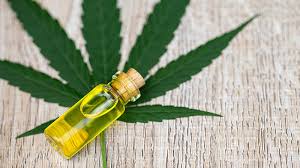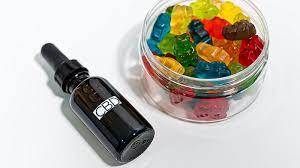Introduction
In recent years, the popularity of Cannabidiol (CBD) products has skyrocketed, driven by the compound’s potential therapeutic benefits and the increasing global shift towards natural and holistic remedies. With a vast array of products flooding the market, two stand out in terms of consumer preference: CBD gummies and CBD oil. Both offer the benefits of CBD, but they are consumed differently and often cater to different demographics. In this article, we’ll delve into the distinct features of each to help you make an informed choice.
Understanding CBD
Before we dive into the differences between CBD gummies and CBD oil, it’s crucial to understand what CBD is. CBD is one of the many cannabinoids found in the Cannabis sativa plant. Unlike Tetrahydrocannabinol (THC), another well-known cannabinoid, CBD does not produce a ‘high’ or psychoactive effects. Instead, it’s lauded for potential therapeutic benefits like reducing anxiety, managing pain, and improving sleep.
CBD Gummies: A Sweet and Discreet Option

- Taste and Experience: For many, the most significant advantage of CBD gummies over other forms of CBD is the taste. Gummies are often flavored, masking the natural, earthy taste of CBD, making them a favored choice for those sensitive to such flavors. Moreover, consuming gummies is akin to eating candy, providing a familiar and enjoyable experience.
- Portability and Discretion: Gummies are discreet. They look like regular candies, allowing users to consume them without drawing attention. They’re also portable and don’t require any additional equipment like droppers.
- Precise Dosage: Each gummy has a predetermined amount of CBD. This makes it simple for users to track their intake. If a gummy contains 20mg of CBD, consuming two would mean you’ve ingested 40mg, making dosage straightforward.
- Longer Onset Time: It’s worth noting that since gummies need to be digested, they might take longer to produce effects compared to sublingual (under the tongue) methods.
CBD Oil: Versatility and Rapid Action

- Flexibility in Dosage: One of the most notable advantages of CBD oil is the flexibility it offers in dosing. Using a dropper, users can easily adjust their dose, allowing for minute adjustments to find their optimal level.
- Rapid Absorption: When CBD oil is taken sublingually, it’s absorbed directly into the bloodstream through the mouth’s capillaries, leading to quicker effects compared to edibles like gummies.
- Taste: Not everyone is a fan of the distinct taste of CBD oil. While some enjoy the natural, earthy flavor, others find it off-putting. However, many brands offer flavored oils to help mask this taste.
- Versatility: Beyond sublingual administration, CBD oil can be incorporated into foods, drinks, or even applied topically, making it a highly versatile product.
Other Considerations
- Ingredients: Gummies often contain additional ingredients like sugars, dyes, and flavors. For those watching their sugar intake or those with dietary restrictions, it’s crucial to read labels. In contrast, CBD oil typically contains fewer ingredients, primarily the carrier oil and CBD.
- Price Point: Per milligrams of CBD, oils might be more cost-effective than gummies. Gummies require additional processing and ingredients, which can increase their price.
- Bioavailability: The body’s ability to absorb and use a substance is termed bioavailability. CBD oil, when taken sublingually, often has higher bioavailability than gummies, meaning more CBD enters the bloodstream.
The Evolution and Popularity of CBD Products
CBD’s meteoric rise in the health and wellness industry is nothing short of remarkable. From being a relatively unknown compound just a decade ago, it has now firmly entrenched itself in the daily routines of millions worldwide. This incredible growth is fueled by anecdotal claims and emerging research pointing to its potential benefits.
Why are CBD Products so Popular?
CBD’s non-psychoactive nature gives it a significant edge. Unlike THC, CBD doesn’t produce the ‘high’ commonly associated with marijuana. This means that users can potentially enjoy CBD’s benefits without the altered state of mind, making it more socially acceptable and legally permissible in many regions.
Another driving factor behind CBD’s popularity is its versatility. From oils, tinctures, and edibles to topicals, vapes, and even pet products, CBD can be found in a myriad of forms, catering to various preferences and needs.
CBD Gummies vs. CBD Oil: A Deeper Dive

As we delve deeper into the gummies vs. oil debate, several more nuanced differences emerge:
- User Demographics: CBD gummies often appeal to younger consumers due to their familiarity, candy-like taste, and fun shapes. CBD oil, on the other hand, has a broader demographic, from young adults to seniors, primarily because of its versatile application methods.
- Health Benefits: While both gummies and oil offer CBD’s potential benefits, some believe that certain formats might be better suited for specific conditions. For instance, those using CBD for gastrointestinal issues might prefer gummies since they’re processed in the digestive system. Conversely, someone looking for rapid anxiety relief might choose oil for its quicker onset.
- Duration of Effects: Gummies, being edibles, typically have a more prolonged but often milder effect as they’re released slowly during digestion. Oils, especially when taken sublingually, can provide quicker but sometimes shorter-lasting effects.
Environmental and Ethical Considerations
As the CBD industry grows, there’s an increasing emphasis on sustainable and ethical production. Consumers are now more informed than ever and often consider the environmental footprint of their purchases.
- Production: The creation of CBD gummies might have a slightly higher environmental impact due to the additional ingredients and manufacturing processes involved. CBD oil production is typically more straightforward, often involving fewer steps.
- Packaging: Oils usually come in glass bottles, which are recyclable in many regions. Gummies, however, often come in plastic containers or pouches, which might not be as environmentally friendly.
The Verdict
Both CBD gummies and CBD oil have their unique advantages and potential drawbacks. The optimal choice varies based on individual needs, preferences, and values. As the CBD industry continues to evolve, it’s exciting to imagine what innovations lie ahead. For now, whether you’re team gummy or team oil, the key lies in informed choices and understanding that one size doesn’t fit all.
